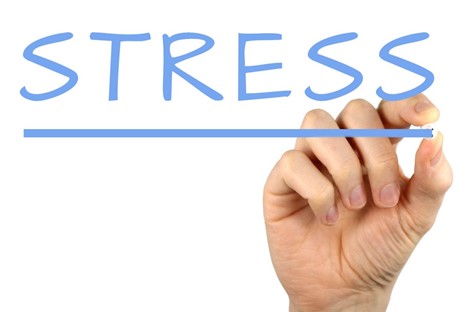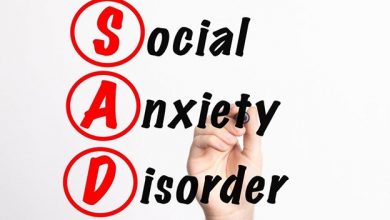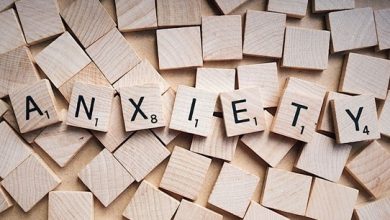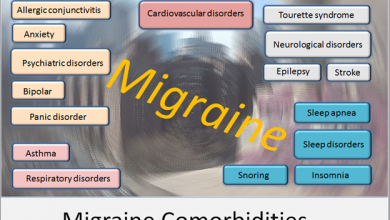Stress Relief: The Role Of Exercise In Stress Management
Deal with Stress and Anxiety with Simple Exercises

Exercise and Manage your Stress like a Pro
The word “stress” is widely used, and it has a variety of meanings, by learning what stress means, we will also learn to deal with stress.
Stress is described as a disturbance of the body’s homeostasis or a state of disharmony in response to a real or perceived danger or challenge, according to the journal of psychology.
A “stressor” is a potentially dangerous or difficult situation, when an individual is confronted with a stressful situation, the body prepares to react to the threat or challenge.
The hormones epinephrine, norepinephrine, and cortisol are produced by the autonomic nervous and endocrine systems in response… the stress response is the outcome of a cascade of physiological reactions triggered by hormone development.
The hormones epinephrine and norepinephrine play a role in the initial changes that occur in the body to prepare it to respond and prepare for a task.
Increases in heart and respiration rates, blood pressure, perspiration, and energy output are among these responses. Immune function is suppressed, as is the development of -endorphin (the body’s natural painkiller), as well as increased acuity of the senses.
The fight-or-flight response, which prepares the body to cope with the stressor, is made up of these changes. Cortisol output rises when the stressor is viewed as negative or as a threat rather than a challenge.
Cortisol aids in energy production while also suppressing immune function.
Exercise And Stress Relief
Exercise improves your general health and well-being, giving you more energy during the day.
However, exercise has certain direct stress-relieving properties:
It Increases The Endorphin Levels
Physical activity may aid in the development of endorphins, the brain’s feel-good neurotransmitters. While a runners high is commonly associated with this feature,
any aerobic exercise, such as a rousing game of tennis or a nature walk,
will produce the same sensation.
It Aims To Relieve The Negative Effects Of Stress
Exercise can help the body cope with stress by simulating the effects of stress, such as the fight-or-flight response, and allowing the body and systems to practice working together to overcome those effects.
This may also have beneficial effects on your body, such as protecting your cardiovascular, digestive, and immune systems from the negative effects of stress.
Meditation In Motion
It’s like moving meditation, you can find that after a fast-paced game of racquetball, a long walk or run, or multiple laps in the pool, you’ve forgotten about the day’s irritations and are just focused on your body’s movements.
You can find that focusing on a single mission, and the resulting energy and optimism will help you remain calm, clear, and centered on everything you do when you begin to regularly shed your everyday stresses through movement and physical activity.
It Makes You Feel Better
Regular exercise can boost your self-esteem, enhance your mood, help you relax, and alleviate mild depression and anxiety symptoms.
Exercise can also help you sleep better, which can be hampered by stress, depression, and anxiety. All of these workout advantages will reduce stress and give you a sense of control over your body and life.
What Types of Exercise Help With Stress?
There are many ways to achieve your weekly fitness goals.
To what kind of physical activity do you engage in?…
You don’t have to be a marathon runner or an elite athlete to benefit from exercising for stress relief, almost any type of exercise is beneficial.
Consider doing some mild aerobic activities, such as:
- Bicycling
- Jogging or fast walking
- Swimming or water aerobics are two options.
- Playing racquetball or tennis
- The act of dancing
- Sculling
- Consider weight training or resistance band workouts when it comes to muscle-strengthening exercises.
Even something as easy as gardening or taking the stairs instead of the elevator will give you a psychological boost… in fact, any form of exercise will improve your health while also lowering your stress levels.
However, it’s important to pick an activity that you enjoy rather than one that you hate.
If you dislike being in the water, swimming is not an activity for you. If the idea of running makes you nervous, preparing for a 5K race will not help you relax.
Experiment with different hobbies before you find something you enjoy. You’ll be more likely to stick to your exercise routine if you’re having fun. Working out with a partner will enhance the stress-relieving effects of a workout. Sharing it with family or friends will help it feel less like work and more like fun.
… This is the Role Of Exercise In Stress Management
Now that you can deal with stress and know the role of exercise in stress management, with this knowledge, help yourself and those people around you by sharing this post!
Check My Private Library For Psychology
…
Would You Like To Be Able To Help, Heal, And To Change Your Life And The Life Of Many People By Learning New Skills?…
Below Are The Easiest And The Most Effective Ways To Make It Happen!
- Become A Coach And Start Earning By Helping Other People
- Master Your Profession, Your Passion, Or Something New
- Be Part Of The World’s Leading Experts And Find Success
- At-Home Treatment For Children With Anxiety
Other Important Resources
- Improve Your Life Today (Book)
- IG: Personal / Eagle Beagle Spirit
- Visit Our Shop or Become An Ambassador
Always fighting for your rights and your daily improvement,
Juan Plamen




